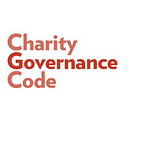Integrity in charity governance
The Charity Governance Code is an excellent guide for best practice governance. ACEVO’s own board has carried out a self-assessment of its policies, processes and practice using the Code as a framework. But, like any good tool, it is important to regularly review whether new information and practice is sufficiently incorporated, or if changes should be made. The Code is currently open for consultation one of the questions posed is:
“Should the Integrity principle say more about charities’ ethical principles and the right to feel safe?”
This offers an important opportunity for people that work with or alongside charities to consider whether the section covering ‘integrity’ says enough about ethics and the board’s responsibility to nurture a safe culture. This question is especially important in light of reports over the last two years about sexual abuse, exploitation and bullying taking place in charities.
Since the first media report on Oxfam in early 2018, a number of co-ordinated pieces of work have been undertaken with the aim of reducing the risk of harmful behaviour taking place in charities, and to ensure there is a robust response from leadership when unacceptable behaviour does occur. This work includes the development of the Charity Ethical Principles by NCVO and a research report on bullying in charities conducted by ACEVO and the Centre for Mental Health, both of which clearly have a strong link to the principle of integrity.
Integrity is already one of seven key principles in the Charity Governance Code. The Code says that the board should adopt values and create a culture “which helps to achieve the organisation’s charitable purpose”.
The three key outcomes listed under integrity are:
“3.1 The board acts in the best interests of the charity and its beneficiaries. The board is not unduly influenced by those who may have special interests and places the interests of the charity before any personal interest. This applies whether trustees are elected, nominated, or appointed. Collectively, the board is independent in its decision making.
“3.2 The board safeguards and promotes the charity’s reputation and, by extension, promotes public confidence in the wider sector.
“3.3 Members of the board and those working in or representing the organisation are seen to be acting with integrity, and in line with the values of the charity.”
It also says that boards have a responsibility to create ‘a culture which helps achieve the organisation’s charitable purpose.’ But I think the Code could go further to explicitly reference the board’s role in creating a safe environment for all those who interact with the charity, whether they are receiving a service or support, are employees or volunteers (or, as in many cases, a mixture of the three). Clearly such a commitment would include a responsibility to create a safe environment for trustees themselves.
One of the six recommendations made in ACEVO’s research on bullying was for charities to nominate at least one trustee and one senior manager to lead on staff workplace well-being. These individuals, (within the oversight of the whole board) should be responsible for leading work to monitor and evaluate the mental health and wellbeing of staff and volunteers, and to evaluate the organisational response to areas of concern around bullying and emotionally abusive behaviour. ACEVO is modelling this best practice itself, with trustee Menai Owen-Jones and I nominated in these positions. But there has been relatively little take-up from other charities and I believe incorporating it in to the Charity Governance Code would help to make this more common practice.
Beneficiaries First
The first principle in NCVO’s charity ethical principle is ‘Beneficiaries First’ which requires that a charity:
“Carry out their purpose to provide the greatest benefit to their beneficiaries and their cause, regardless of whether this might initially have a negative impact on the reputation or operation of the charity or its leadership.”
This could be seen as at odds with the second key outcome on integrity in the Code which says:
“The board safeguards and promotes the charity’s reputation and, by extension, promotes public confidence in the wider sector.”
I don’t think there is intended to be any conflict, explicitly laying this out in the Code could avoid any unnecessary confusion.
Role modelling compassionate, open, transparent leadership
I appreciate that boards have a huge amount of responsibility, and the Code is already extensive but culture is disproportionately influenced by the behaviour of those at the top, and that’s what makes integrity such an important principle. Role modelling compassionate, open, transparent leadership based on integrity is one of the most important things trustees can do to ensure they are creating a safe environment in which the charity can best meet its objectives. If you agree with me, or if you don’t, please do have your say by filling in the consultation document before 28 February.
